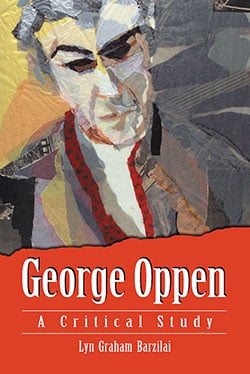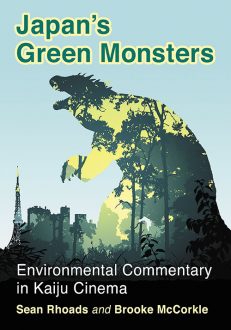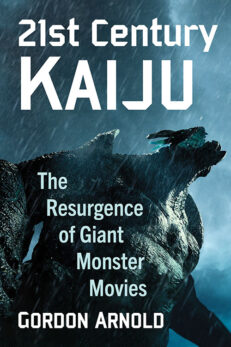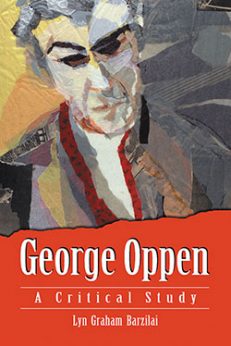George Oppen
A Critical Study
$45.00
In stock
About the Book
This book offers a detailed look into the life and works of Pulitzer Prize–winning Jewish American poet George Oppen. Born in 1908 in New York State, Oppen spent parts of his life working as a die cutter and carpenter and later running a furniture factory. Like the work he did with his hands during those years, his poetry used basic materials; he favored short, simple nouns and focused on concrete objects rather than abstractions.
This book examines the characteristics of Oppen’s work, particularly his use of small and often odd phrasings and unusual line formations to express the ultimately inexpressible. The first three chapters delve into his primitive modes, language and materials. Subsequent chapters tackle his subjects: cityscapes, light and water, and then animals and their relation to human history and struggles. His final collection of poems, Primitive, is examined in its own chapter, which is followed by an exploration of recurring specific phrases and concrete images. The author demonstrates how Oppen’s poetry restores to readers an essential dimension of communication and experience that has been ignored or forgotten.
About the Author(s)
Bibliographic Details
Lyn Graham Barzilai
Format: softcover (6 x 9)
Pages: 231
Bibliographic Info: appendix, notes, bibliography, index
Copyright Date: 2006
pISBN: 978-0-7864-2549-5
eISBN: 978-1-4766-1483-0
Imprint: McFarland
Table of Contents
Acknowledgments vi
Preface 1
Introduction 3
1. Oppen’s Primitive Modes 9
2. Oppen and Language 20
3. Oppen’s Materials 32
4. What Is There 56
5. Cityscapes 79
6. Light and Water 114
7. Into the Eyes of the Tiger 132
8. Primitive 151
9. Recurring Threads 179
Conclusion 198
Appendix: Additional Reading 207
Notes 209
Bibliography 217
Index 221





